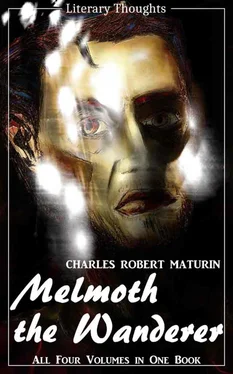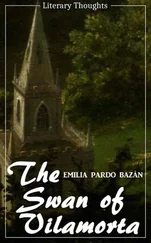1 ...8 9 10 12 13 14 ...34 There were absurdities enough to offend a classical, or even a rational spectator. There were Grecian heroes with roses in their shoes, feathers in their hats, and wigs down to their waists; and Persian princesses in stiff stays and powdered hair. But the illusion of the scene was well sustained, for the heroines were rivals in real as well as theatrical life. It was that memorable night, when, according to the history of the veteran Betterton, Mrs Barry, who personated Roxana, had a green-room squabble with Mrs Bowtell, the representative of Statira, about a veil, which the partiality of the property-man adjudged to the latter. Roxana suppressed her rage till the fifth act, when, stabbing Statira, she aimed the blow with such force as to pierce through her stays, and inflict a severe though not dangerous wound. Mrs Bowtell fainted, the performance was suspended, and, in the commotion which this incident caused in the house, many of the audience rose, and Stanton among them. It was at this moment that, in a seat opposite to him, he discovered the object of his search for four years,—the Englishman whom he had met in the plains of Valentia, and whom he believed the same with the subject of the extraordinary narrative he had heard there.
He was standing up. There was nothing particular or remarkable in his appearance, but the expression of his eyes could never be mistaken or forgotten. The heart of Stanton palpitated with violence,—a mist overspread his eyes,—a nameless and deadly sickness, accompanied with a creeping sensation in every pore, from which cold drops were gushing, announced the * * * * * * * * * * Before he had well recovered, a strain of music, soft, solemn, and delicious, breathed round him, audibly ascending from the ground, and increasing in sweetness and power till it seemed to fill the whole building. Under the sudden impulse of amazement and pleasure, he inquired of some around him from whence those exquisite sounds arose. But, by the manner in which he was answered, it was plain that those he addressed considered him insane; and, indeed, the remarkable change in his expression might well justify the suspicion. He then remembered that night in Spain, when the same sweet and mysterious sounds were heard only by the young bridegroom and bride, of whom the latter perished on that very night. “And am I then to be the next victim?” thought Stanton; “and are those celestial sounds, that seem to prepare us for heaven, only intended to announce the presence of an incarnate fiend, who mocks the devoted with ‘airs from heaven,’ while he prepares to surround them with ‘blasts from hell’?” It is very singular that at this moment, when his imagination had reached its highest pitch of elevation,—when the object he had pursued so long and fruitlessly, had in one moment become as it were tangible to the grasp both of mind and body,—when this spirit, with whom he had wrestled in darkness, was at last about to declare its name, that Stanton began to feel a kind of disappointment at the futility of his pursuits, like Bruce at discovering the source of the Nile, or Gibbon on concluding his History. The feeling which he had dwelt on so long, that he had actually converted it into a duty, was after all mere curiosity; but what passion is more insatiable, or more capable of giving a kind of romantic grandeur to all its wanderings and eccentricities? Curiosity is in one respect like love, it always compromises between the object and the feeling; and provided the latter possesses sufficient energy, no matter how contemptible the former may be. A child might have smiled at the agitation of Stanton, caused as it was by the accidental appearance of a stranger; but no man, in the full energy of his passions, was there, but must have trembled at the horrible agony of emotion with which he felt approaching, with sudden and irresistible velocity, the crisis of his destiny.
When the play was over, he stood for some moments in the deserted streets. It was a beautiful moonlight night, and he saw near him a figure, whose shadow, projected half across the street, (there were no flagged ways then, chains and posts were the only defence of the foot-passenger), appeared to him of gigantic magnitude. He had been so long accustomed to contend with these phantoms of the imagination, that he took a kind of stubborn delight in subduing them. He walked up to the object, and observing the shadow only was magnified, and the figure was the ordinary height of man, he approached it, and discovered the very object of his search,—the man whom he had seen for a moment in Valentia, and, after a search of four years, recognised at the theatre. * * * * * * * * * * *
“You were in quest of me?”—“I was.” “Have you any thing to inquire of me?”—“Much.” “Speak, then.”—“This is no place.” “No place! poor wretch, I am independent of time and place. Speak, if you have any thing to ask or to learn?”—“I have many things to ask, but nothing to learn, I hope, from you.” “You deceive yourself, but you will be undeceived when next we meet.”—“And when shall that be?” said Stanton, grasping his arm; “name your hour and your place.” “The hour shall be mid-day,” answered the stranger, with a horrid and unintelligible smile; “and the place shall be the bare walls of a mad-house, where you shall rise rattling in your chains, and rustling from your straw, to greet me,—yet still you shall have the curse of sanity, and of memory. My voice shall ring in your ears till then, and the glance of these eyes shall be reflected from every object, animate or inanimate, till you behold them again.”—“Is it under circumstances so horrible we are to meet again?” said Stanton, shrinking under the full-lighted blaze of those demon eyes. “I never,” said the stranger, in an emphatic tone,—“I never desert my friends in misfortune. When they are plunged in the lowest abyss of human calamity, they are sure to be visited by me.” * * * * *
The narrative, when Melmoth was again able to trace its continuation, described Stanton, some years after, plunged in a state the most deplorable.
He had been always reckoned of a singular turn of mind, and the belief of this, aggravated by his constant talk of Melmoth, his wild pursuit of him, his strange behaviour at the theatre, and his dwelling on the various particulars of their extraordinary meetings, with all the intensity of the deepest conviction, (while he never could impress them on any one’s conviction but his own), suggested to some prudent people the idea that he was deranged. Their malignity probably took part with their prudence. The selfish Frenchman says, we feel a pleasure even in the misfortunes of our friends,—a plus forte in those of our enemies; and as every one is an enemy to a man of genius of course, the report of Stanton’s malady was propagated with infernal and successful industry. Stanton’s next relative, a needy unprincipled man, watched the report in its circulation, and saw the snares closing round his victim. He waited on him one morning, accompanied by a person of a grave, though somewhat repulsive appearance. Stanton was as usual abstracted and restless, and, after a few moments conversation, he proposed a drive a few miles out of London, which he said would revive and refresh him. Stanton objected, on account of the difficulty of getting a hackney coach, (for it is singular that at this period the number of private equipages, though infinitely fewer than they are now, exceeded the number of hired ones), and proposed going by water. This, however, did not suit the kinsman’s views; and, after pretending to send for a carriage, (which was in waiting at the end of the street), Stanton and his companions entered it, and drove about two miles out of London.
The carriage then stopped. “Come, Cousin,” said the younger Stanton,—“come and view a purchase I have made.” Stanton absently alighted, and followed him across a small paved court; the other person followed. “In troth, Cousin,” said Stanton, “your choice appears not to have been discreetly made; your house has something of a gloomy aspect.”—“Hold you content, Cousin,” replied the other; “I shall take order that you like it better, when you have been some time a dweller therein.” Some attendants of a mean appearance, and with most suspicious visages, awaited them on their entrance, and they ascended a narrow staircase, which led to a room meanly furnished. “Wait here,” said the kinsman, to the man who accompanied them, “till I go for company to divertise my cousin in his loneliness.” They were left alone. Stanton took no notice of his companion, but as usual seized the first book near him, and began to read. It was a volume in manuscript,—they were then much more common than now.
Читать дальше












